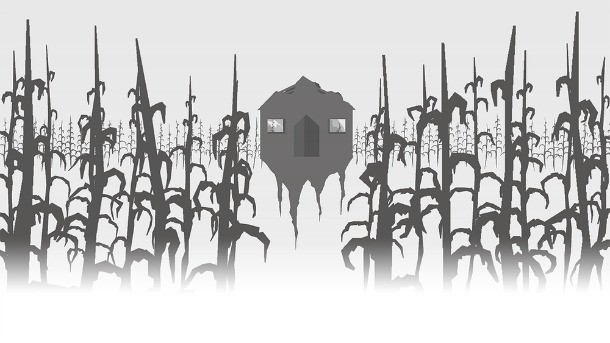Five Games That Find Drama In Realism

Life is boring. At least, compared to video games it is. But there’s a certain allure to the mundanity of life, and a romanticism found in meaningful conversations. There’s comfort in the quieter moments where we find ourselves in-between responsibilities. You may find tension in the silent moments after a loss, a darker intention behind a conversation that once seemed innocent, and a weight in making a choice.
As it often does, art imitates life, and a few games have dipped their toes in these themes. Mechanics are stripped away to be replaced by mundanity, quietness, or an evening that starts well and ends horribly. Here are a few of those games and what makes them special.

Freshman Year
Moving to a new city isn’t easy. For young Nina, it was a nightmare. A student and new resident to New York, your time with Nina in Freshman Year starts innocently enough: you answer texts from a friend about going out while choosing what Nina is going to wear. You have no reason to expect the night holds anything but good times, except for the ominous warning that rests under the window of the browser game: “Please be aware that this game depicts scenarios that may be distressing to people who have experienced abuse.”
Freshman Year touches on abuse in an interesting way. Told through a series of paintings and dialogue options, you guide Nina through an evening going from good, to bad, to worse. As she drinks, she loses her friend, and meets a bar security guard whose advances she does her best to avoid – a task easier said than done. It’s short and hard to watch; it’s troubling and thought provoking.

Three Fourths Home
It’s almost too easy to be a bad son or daughter. It's too easy to forget to call and check in every once and a while, to ignore the problems you left in another part of the country. [bracket]games’ 2014 game, Three Fourths Home, will make you feel like a bad kid. Controlling a conversation between main character Kelly and her family, the faceless, voiceless characters have a certain level of anonymity, allowing you to easily replace the family members with your own.
Three Fourths Home asks only two things of its players: keep Kelly’s car moving and choose her responses. Given little to do, you are left with no other option but to fall further and further into Kelly’s life, meeting a family that is both falling apart and in desperate need of each other. You can reply with resistance, commiseration, or admittance to faults, responses that are always more personal than you might like given the game’s lack of a face to separate you from the game.

Papers, Please
How morally sound are you? That’s the question the 2014 game Papers, Please poses. As a country deteriorates, you are the one deciding whether someone is allowed to leave for a new life or be detained, forced to stay as it worsens. Papers, Please gives its players that weird power.
Do you deny someone a better life for minor infractions? What if they’re smuggling contraband, but offer you a tempting bribe? Where does that get you? As the fictional country of Arstotzka continues to collapse and you continue to drown under new documentation, Papers, Please never makes itself black and white. The game is always challenging you, questioning you. The sense of weight that comes with each ambiguous decision makes Papers, Please both interesting and hard to swallow.

Black Gold
There’s a certain level of reflection that silence rewards and punishes us with. It allows you to remember how good or bad things have become, how lonely or blessed life is. This idea is at the forefront of the game Black Gold. In it, two friends sit in the bed of a truck, drinking beer in the moonlit shadows of an oil pump-jack. Conversations dance between thoughts of moving to the city, lamentations of a father’s death, how the drugs we took are making my feet go numb, and, if so inclined, absolute quiet. Conversations like:
“So, what are you going to do?”
“Sit here and drink my beer, I guess.”
“...”
“...”
It’s easy to get lost in the moments Black Gold centers on.

That Dragon, Cancer
No parent should have to bury their son. No parent should have to bear that cross, feel that pain. Ryan and Amy Green’s goodbye to their late son, Joel, is the focus of That Dragon, Cancer. It grounds itself in the moments parents hope to never find themselves in: a hospital room where their child won’t stop screaming, and sitting in a waiting room learning your son likely won’t live through his cancer. Simply described as heavy, That Dragon, Cancer puts players in the parents’ shoes, forcing them to sit alongside as they receive bad news, or see through their eyes as they try to comfort a dying child.
It’s hard to think of another game that makes its players relive personal horror the way That Dragon, Cancer does. It weighs religious optimism with personal desperation, and confronts the death of a child in a way most games shy away from.
What games that find drama in realism have you enjoyed? Let us know down below.

Get the Game Informer Print Edition!
Explore your favorite games in premium print format, delivered to your door.
- 10 issues per year
- Only $4.80 per issue
- Full digital magazine archive access
- Since 1991









